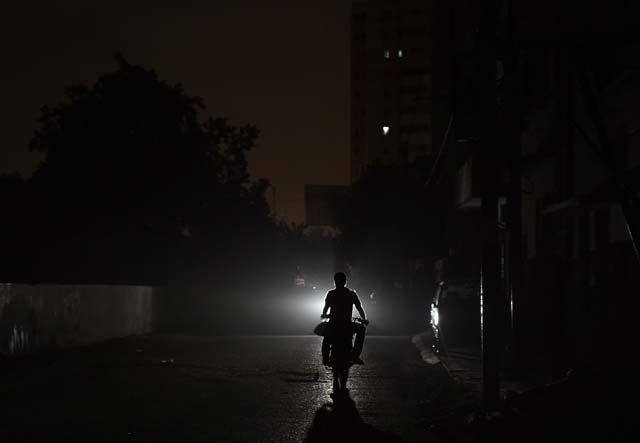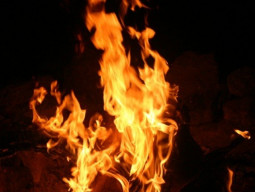
The third major outage of the country's dilapidated electricity grid within a month forced shops, hospitals and businesses to turn to back-up generators as the lights went out, including those in the provincial assembly.
Most areas have been restored, while complete normalisation is underway. #KarachiBlackout pic.twitter.com/27frDML9ZF
— KE (@KElectricPk) January 29, 2016
Tripping of transmission lines, power plants plunge parts of Sindh, Balochistan into darkness
However, stock market trading was not interrupted. The private utility company running the electricity supply said high levels of humidity tripped a transmission line to cause the blackout on Friday morning.
"The tripping should not be attributed to any lack in the infrastructure, rather it was caused by high levels of humidity," K-Electric said in a statement on Twitter, adding that power had returned to most of the city by early afternoon.
The power breakdown hit around 5:30am in areas, including Clifton, Defence, Gulshan, Gulshan-e-Maymar, Tariq Road Drigh Road, Lyari and Federal B Area.
Disruption at the 500kV EHT line has caused the #KarachiBlackout, teams working to restore power asap. pic.twitter.com/fCWL63ZFPD
— KE (@KElectricPk) January 29, 2016
I’m responsible for power outages
An official at the Ministry of Water and Power said at least 90 per cent of the city was affected after a transmission line tripped because of dense fog.
K-Electric would be supplied with power through a separate transmission line, added the official, who asked not to be identified because he was not authorised to speak to the media.
Prime Minister Nawaz Sharif rode to power in 2013 on a promise to fix the electricity crisis, but Pakistan still struggles to provide power to its 190 million people and industries.
The capital, Islamabad, was hit by a major blackout this month, as were Punjab, the country's most populous province, and the northwestern region of Khyber Pakhtunkhwa.
Power cuts running eight hours each day on average have crippled an economy already wrestling with militant violence, a high budget deficit and falling exports. Pakistan's state power companies are notoriously inefficient.
The government sells power below the cost of production but pays subsidies late or not at all. Plants cannot afford fuel.
Many influential families refuse to pay their bills while the poor often cannot afford to pay. The unpaid bills run right through the generation chain, inflating debt, and chipping off around two percent of Pakistan's GDP in the last five years.
Today is #BlackFriday in #Karachi#KarachiBlackOut
— Sheikh Salman® (@Sheikhsalmaan) January 29, 2016
What is electricity situation in your area? #Karachi #KE @adeel_azhar kiya khabar hai?
— Hammad Siddiqui (@hammads) January 29, 2016
It seems like a major power break down in #Karachi again!! Entire #PECHS black out & @KElectricPk copy pasting same thing to everyone
— Rabiyah Tungekar (@Rabeeyah) January 29, 2016
Power break down in karachi
— Hadeed. (@Imhadeed) January 29, 2016
, Almost whole karachi shut down
Cause--- tripping in JAMSHORO high tension wires #KE https://t.co/GRviYlUpKD


1732538123-0/BeFunky-collage-(90)1732538123-0-165x106.webp)

1732536148-0/ariana-(1)1732536148-0-165x106.webp)












COMMENTS (6)
Comments are moderated and generally will be posted if they are on-topic and not abusive.
For more information, please see our Comments FAQ